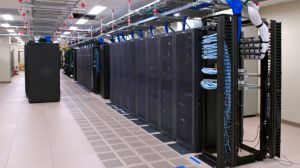Introduction
Web server and application server are two words that often come up in web development and hosting. The two terms may seem interchangeable, but they have different meanings and serve their purposes in different stages of content delivery to users.
In this guide, we will discuss the web server vs. application server, including the major distinctions between the two, their different functions and ways of working, and when to use them. Thus, by the end of this guide, you will know which one fits your project’s needs — static website or dynamic application.


What is a Web Server?
There are software and hardware web servers that serve content types such as HTML, CSS, JavaScript, and image files in static formats to users over the Internet. It received an HTTP request from the browser and replied with the requested webpage or file.
Key functions:
- serves static files
- manages HTTP requests and
- responses
- handles basic load balancing
- security protocol support (SSL/TLS)
Examples:
- Apache HTTP Server
- Nginx
- Microsoft IIS
What is an Application Server?
It produces dynamic content and processes business logic. It works with web servers in order to output on-the-fly content from back-end services and from databases.
Core functions:
- execution of server-side scripting (Java, PHP, Python, etc.)
- execution of business logic
- connections to the database and API calls
- management of user sessions and database transactions
Examples:
- Apache Tomcat
- JBoss (WildFly)
- WebLogic
Use Cases for Web Servers
Web servers are ideal for:
Hosting static websites like blogs or portfolio sites
Acting as a reverse proxy or load balancer
Serving API responses in microservices
SSL termination and caching
Use Cases for Application Servers
Application servers shine in:
Running dynamic websites and applications
Handling user authentication and session management
Processing eCommerce transactions
Connecting to databases and third-party APIs
How They Work Together
As it happens in most modern architectures, a web server and an application server can be used to work together.
- The web server receives a request from a client.
- In case the request is static, it serves it directly.
- If the request is a dynamic one, it is forwarded to the application server.
- The application server handles requests, sometimes by executing logic or querying a database.
- The response is sent to the client through the web server.
Popular Web Servers
Let us see the most accepted web servers in the industry:
Apache HTTP Server
Open-source, modular, and highly configurable. Good for small to medium websites.
Nginx
High-performance and scalable. Commonly used as a reverse proxy/server or load balancer.
Microsoft IIS
Used in Windows environments and supports .NET technologies.
Popular Application Servers
Application servers typically support different programming environments, including:
Apache Tomcat
Highly lightweight and ideal for running web applications based on Java.
WildFly (formerly JBoss)
An enterprise server with very high scalability.
WebLogic
The enterprise-grade application server offered by Oracle and used by large corporations.
Choosing the Right Server for Your Business
- Static or dynamic content?
- Static = web server
- Dynamic = application server
- Expected user traffic?
- High traffic requires load balancing (web server)
- Complex backend logic?
- Go for an application server executing scripts and connecting to the database.
- What technology stack?
- Java = Tomcat/WildFly
PHP = Apache with the PHP module
✅ We at RexterTech facilitate business by building its server infrastructure in an efficient and scalable manner.
How RexterTech Can Help
At RexterTech, we specialize in
Hosting consultation and server configuration
Custom website and web app development
Load balancing, reverse proxy setups
Database-driven web solutions
Whether you’re launching a small business website or a complex SaaS product, our team provides end-to-end development and server deployment support.
Final Thoughts
Understanding the difference between a web server and an application server is crucial in building scalable, fast, and secure digital platforms. While web servers handle the simple task of serving content, application servers are the brains behind interactive and data-driven websites.
Many modern businesses use both in combination to maximize performance and flexibility.
Need help choosing the right tech stack? Let RexterTech assist you from the ground up.



